The Day of Magi
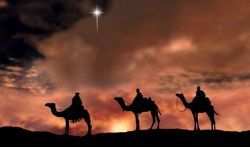
January 6 the Catholic Church celebrates the Epiphany. This day is also dedicated to the memory of Three Kings (Magi) who brought gifts to baby Jesus at Christmas.
Magi are characters mentioned in the New Testament of the Bible. According to legend, the Magi came from the East, guided by a star that led them to Bethlehem. There they were looking for the newborn Jesus and worshiped him, offering a gold (inheritance of kings), frankincense (used in worship), and myrrh (a substance used for embalming). Before arriving in Jerusalem, they met with the ruler Herod the Great, who urged them to return and tell him return about the exact place where the child is. So he could go and worship him. In fact, he wanted to kill the baby, so ordered the killing of innocents.
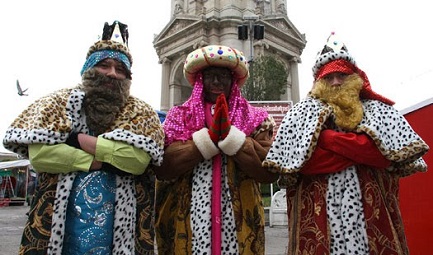
The story mentions the angel who appeared to the Three Kings and warned them of the danger that could wait for Jesus if they obey Herod. Therefore, they did not return to Herod.
Obviously, because of the number of gifts that Gospel story mentions (gold, frankincense and myrrh) it has been suggested that there were Three Wise Men. However, different traditions noted that there were two, four, seven and even twelve of them!
Firstly the names of Kings were mentioned in the church of Sant Apollinare Nuovo in Ravenna (Italy). A frieze of the church is decorated with mosaics of the middle of VI century depicting the procession to the altar of the Virgin. Three men march at the head of the procession dressed of Persian fashion and with Phrygian caps on their heads. They are bringing the gifts to the Virgin seating on a throne and holding a child on her left knee. Above their heads, from the right to the left, you can read three names: Melchior, Caspar, and Balthazar...
Tradition was gradually adding other symbolic details: it transformed the Kings in representatives of the three races known in ancient times and of the three ages of man.
Another legend says that after the resurrection of Jesus, the Apostle Thomas found the Kings in Saba (India), they were baptized, ordained as bishops, and later, in the year 70 were martyred. They were buried in the same grave. The remains of Kings, according to tradition, were brought to Constantinople by St. Helena. Later, in the XII century, Frederick Barbarossa took them to Cologne, where their ashes rest until today.
It seems contradictory that the persons practicing magic (strictly rejected by the Old and New Testament) were allowed to worship to Christ. However, the Greek term used for the title of kings, meant not sorcerers but rather wise men, or, more precisely, the men of science. St. Matthew shows that they were astronomers who knew exactly the movement of stars.
Catholic Church and science are actively exploring the events of Three Wise Men’ story: the identity of these figures and their alleged royal status.
Nevertheless, despite all the contradictory of the figures of Melchior, Caspar and Balthazar, the day January 6 is one of the favorite holidays of the Mexican kids. On this day – here it’s called Los Reyes (“The Kings”) – children receive gifts.
The tradition of celebrating the Day of the Magi came to Mexico from Spain. The day is almost entirely devoted to these, in fact, pagan characters, only in churches recall the Epiphany – the coming of Christ worldwide.
On the eve, in the evening of January 5, children write letters with list of toys, the most coveted and deserved by good behavior during the previous year. The letter is put under the Christmas tree in the boot, next to which the food and water for the Magi and their animals are left.
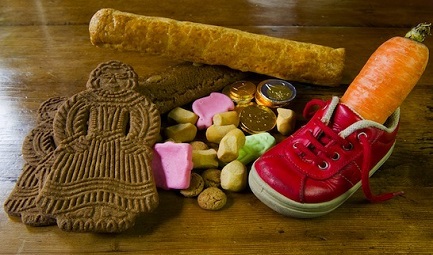
Some boys and girls send their letters by tying it to a balloon. In large shopping malls and markets even the mailboxes for letters to the Kings are arranged.
Early in the morning on January 6 children find toys and sweets. But if the Kings decide that a boy or a girl behaved badly, instead of a long-awaited toy the child finds in his boot only a piece of charcoal.
The day ends with a delicious dinner – an oval fancy loaf with caramelized fruits, which is called here “rosca de reyes”. Rosca symbolizes the crown of the Kings, fruits – their jewelry, and figurines of baby Jesus hidden in the roll – the fact that the newborn Christ was protected of Herod by the Wise Men.
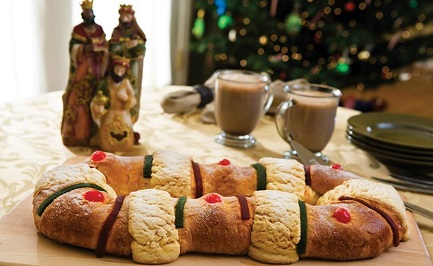
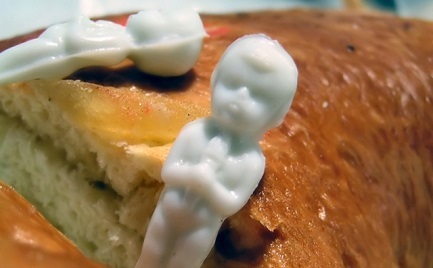
Rosca is eaten with hot chocolate or atole – a drink based on oat flour or cornstarch. The one who find a figure of baby in his piece of the loaf, should stand a treat on February 2, the day the Catholic Candlemas. This person will entertain to the company with tamales – a kind of cornmeal cakes with filling, wrapped in corn leaves and steamed.
The city Tizimin of the state of Yucatan annually celebrates magnificently the Day of the Magi. The crowns of legendary Kings are even depicted on the emblem of the city. From December 28 until January 7 a variety of festivals, exhibitions and competitions is arranged in the city. And all due to the fact that the Franciscan monks at the turn of the 15th and 16th centuries have built a convent, whose patrons were Melchior, Caspar and Balthazar.
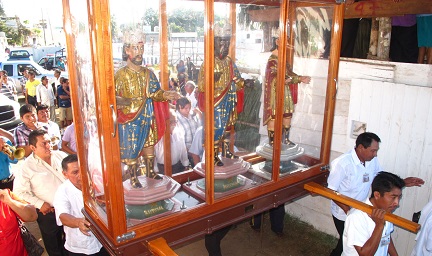
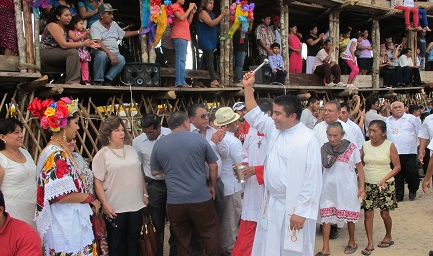
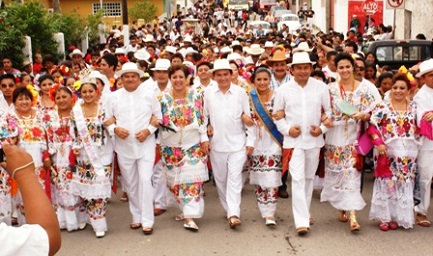

Dear colleagues! There are a lot of women among you, and today we want to congratulate them – Happy Spring Day, Happy Cordiality Day, Happy Women's Day!

Annually with great trepidation Dominicans celebrate the Virgin of Mercy Day, the saint patroness of their country. Her name is associated with the religious order of Mercy established in 1218. And even though it was founded in Barcelona, Spain, and not on Dominican land, which at that time was not a colony of Spain, the followers of the Order, one of the first clergymen who came to the Dominican Republic during the second voyage of Christopher Columbus brought the image of the Virgin of Redemption.















